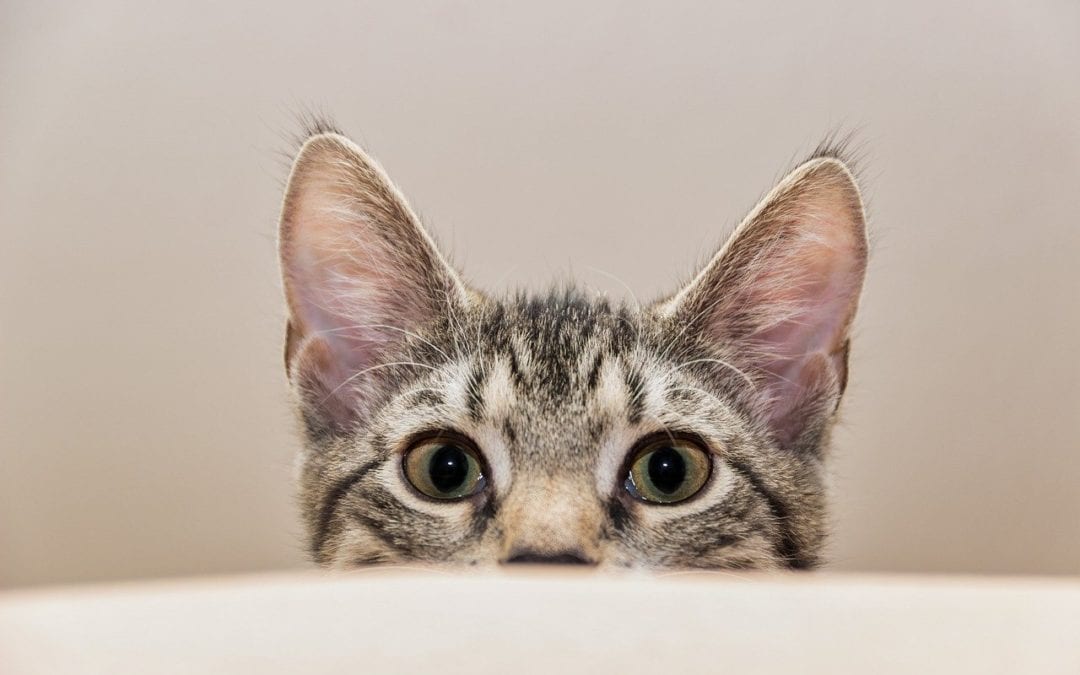#1: “My cat doesn’t go outside, he doesn’t need preventative healthcare like vaccines and dewormer.”
Many cases of Rabies exposure in cats in WA State occur from bats that come into the house! Rabies is a zoonotic disease with no cure, so make sure your cat is up to date on his or her Rabies vaccination. You can discuss with your veterinarian what other vaccinations are needed for indoor cats based on their lifestyle and exposure to other cats.
Although it’s true that cats are much more likely to pick up intestinal parasites if they go outdoors, they can also be exposed to parasites from other sources, such as other pets that go outdoors, soil from houseplants, and hunting critters that get indoors.
The most important part of preventative healthcare is the annual exam. This allows you to discuss with the veterinarian any concerns you may have with your cat and can help detect any health concerns as soon as possible.
#2: “My cat looks healthy, he doesn’t need to go to the vet.”
Cats are masters at hiding their illnesses. Some of the most common cat illnesses will have very few or very subtle symptoms at first. Getting your cat examined every 6-12 months, and getting routine bloodwork, will help detect any hidden issues as soon as possible.
#3: “My cat urinated on my clothes or bed. He is mad at me!”
“Inappropriate” urination in cats is a sign of sickness or stress, not anger. Conditions like urinary tract infections, cystitis, kidney disease, or diabetes (among others) could be causing your cat pain, giving them a negative association with the litterbox and causing them to urinate outside of the box. If these issues are ruled out, your cat is likely urinating outside the box due to anxiety or stress. Talk to your veterinarian about medications or household management that may help ameliorate the problem.
#4: “I need to declaw my cat, he is scratching my furniture!”
Scratching is a natural behavior for cats and they need both horizontal and vertical scratching surfaces. Cats are actually very trainable and can be trained to scratch only on appropriate surfaces. Cats’ claws can be trimmed with pet nail clippers, and kittens who are still being trained not to scratch/climb can have Soft Paws applied – these are soft gel caps that can be applied over their nails if they are inappropriately scratching furniture or people. To prevent your cats from scratching you, do not rough play with your cats using your hands – use a toy instead!
Declawing involves removing the first joint of the toe and is far from a harmless procedure. It can lead to chronic pain or behavioral problems, such as urinating and defecating outside the litterbox or increased biting behavior.
#5: “Cats have nine lives!”
Cats just have one life – make it the best it can be by helping keep your cat healthy! Call and schedule your appointment for routine healthcare today!

